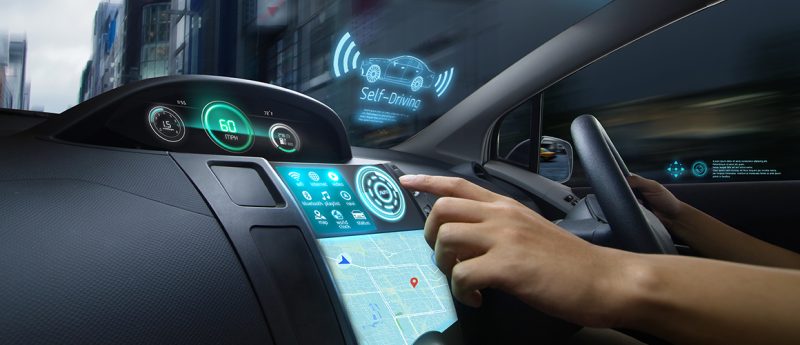
STELLAR Program Aims for Autonomous Vehicles With Permanent Memories

Now entering development phase 2, the STELLAR system aims to give autonomous vehicles durable layers of training and experience not possible with current AI systems. © 2020 Getty Images.
Lifelong Learning System Enters New Phase to Build Novel Artificial Intelligence With Durable Layers of Training and Experience
HRL Laboratories, LLC, has reached the second phase of its novel system aimed to give the artificial intelligence systems behind autonomous systems such as self-driving cars the ability to learn new tasks and preserve experience without losing or displacing previous learning—features not possible with current AI systems.
The Super Turing Evolving Lifelong Learning ARchitecture (STELLAR) project will enable applications such as self-driving cars to begin with initial factory training, then learn new tasks, learn new versions of old tasks, and continually consolidate new information with old, gaining experience while in the field. The goal of STELLAR is to improve driving abilities while coping with irrelevant data and noise without forced loss of learning.
“Traditional AI systems must lose old learning when new learning is needed,” said Praveen Pilly, HRL’s Principal Investigator. “A lifelong learner system will be continuously learning from new experiences and improving its performance, the way a human does. Now that we have attained Phase 2 of this project, we must bring together the different components we have developed for this purpose, and demonstrate them working together as a single machine.”
STELLAR is HRL’s contribution to the Lifelong Learning Machines (L2M) program launched by the Defense Advanced Research Project Agency (DARPA). In Phase 1, the HRL-led team published 14 conference papers and 7 journal articles in top-tier venues such as IJCAI, AAAI, ICLR, GECCO, and Neural Networks.
“Our main task in Phase 2 is to integrate our system components into a working agent that interacts with the world. It has perception, memory, planning, and control subsystems, along with all the innovative processing components we developed in Phase 1,” Pilly said. “The components were tested individually to highlight their functions, but they were all designed to talk to each other. Our biggest challenge is integrating the components to work as one while retaining their individual properties, a huge software integration problem with this number of pieces.”
The HRL team and its collaborators will take a modular approach to the STELLAR integration problem due to its size and complexity. Pilly outlined that part of the testing to be done will be ablation studies in which the integrated system is asked what effects derive from removing one or more system components. He further stated that if the HRL team’s hypotheses about the functions are correct, the system’s capabilities would be measurably affected based on metrics that quantify the conditions under which the components contribute to different capabilities.
As per the L2M program, lifelong learning for an AI system requires three conditions. The first is continual learning of a nonstationary stream of novel and recurring tasks without distinct testing and training, consolidating new information to improve performance, while coping with irrelevance and noise. The second is transfer and adaptation by which the system performs better on average on the next novel or known task it experiences (known as forward and reverse transfer) and maintains performance during rapid changes in the current task. The third condition is scalable sustainability of learning for an arbitrarily long lifetime with limited resources of memory, time, etc.
Other members of the HRL team are Charles Martin, Soheil Kolouri, Nicholas Ketz, Shane Roach, and Nigel Stepp.
HRL Laboratories, LLC, California (hrl.com) pioneers the next frontiers of physical and information science. Delivering transformative technologies in automotive,aerospace and defense, HRL advances the critical missions of its customers. As a private company owned jointly by Boeing and GM, HRL is a source of innovations that advance the state of the art in profound and far-reaching ways.
Media Inquiries: media[at]hrl.com, (310) 317-5000